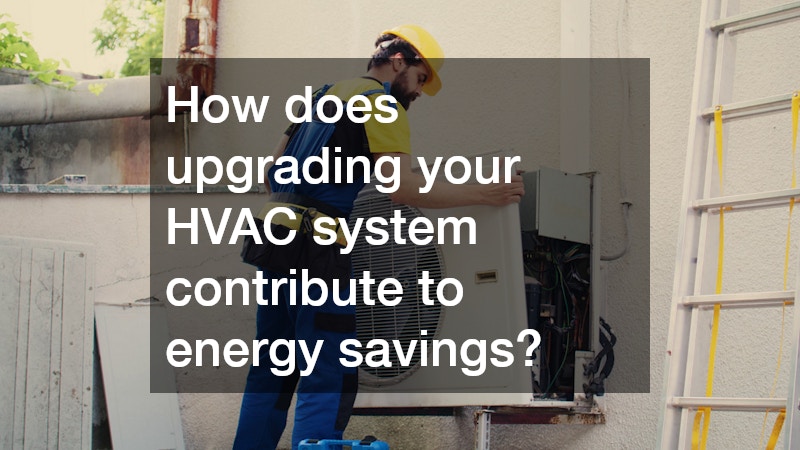Discover valuable insights and practical advice from top cool air experts on how to enhance your energy efficiency at home with confidence and ease. Whether you’re looking to reduce your utility bills, extend the life of your HVAC systems, or minimize your environmental impact, these tips provide effective strategies for achieving a more energy-efficient living space tailored to your unique needs. From simple behavioral changes to more advanced upgrades, there’s a solution for every homeowner. By following the expertise of industry professionals, you can master the art of efficient cooling and heating while improving comfort, reducing waste, and making a long-term investment in your property’s sustainability.
1. What are the most effective ways to cool a home efficiently?

Cool air experts emphasize the importance of optimizing your home’s natural ventilation first. By opening windows during cooler parts of the day and using cross-ventilation strategies, you can significantly cool your home without relying solely on air conditioning. It’s recommended to pair this method with reflective window treatments that block solar heat.
Air conditioning services suggest using ceiling fans to complement natural airflow. Fans promote more uniform distribution of air throughout your space, reducing the demand on your HVAC system. Moreover, strategically placing fans can help in circulating cooler evening air during hot summer days.
Trusted HVAC contractors advocate for sealing thermal leaks in your home. Sealing cracks and gaps prevents cool air from escaping, allowing your HVAC company to more efficiently regulate indoor temperature without unnecessary energy consumption. These adjustments can significantly lower your electricity bills.
2. How can regular maintenance by cool air experts improve energy efficiency?
Regular maintenance by cool air experts is crucial to enhancing your HVAC system’s efficiency. Cool air experts recommend scheduling routine inspections and tune-ups with professional HVAC contractors to identify potential issues before they escalate. Regular checks can prevent costly HVAC repair down the road, saving you money and preserving energy.
Cleaning and replacing filters is a key maintenance task suggested by experts. Dirty filters obstruct airflow, forcing the system to work harder to circulate air, thus consuming more energy. By maintaining clean filters, you contribute to the optimal performance of your air conditioning system.
In addition to filter maintenance, cool air experts stress the importance of inspecting ductwork for leaks or blockages. Properly sealed and clean ducts ensure that cooled air reaches all intended areas of your home, maximizing the efficiency of your HVAC system. This practice is often overlooked but is essential for sustainability.
3. What temperature settings do cool air experts recommend for optimal efficiency?
Cool air experts recommend setting your thermostat to 78 degrees Fahrenheit when you’re at home, as it strikes a balance between comfort and energy efficiency. When you’re away, it’s advisable to set the thermostat a few degrees higher. According to residential HVAC contractors, these settings help reduce unnecessary power consumption.
For further efficiency, many HVAC companies suggest utilizing a programmable thermostat. This tool allows you to automate temperature settings based on your routine, ensuring that your HVAC system is not overworking when it doesn’t need to. It’s a smart investment that offers long-term energy savings.
Additionally, cool air experts highlight night setbacks as a method to save energy. By slightly lowering the temperature settings overnight, when the external temperature is cooler, your HVAC system can operate more efficiently. These adjustments can contribute significantly to reducing your monthly energy bills.
4. How does upgrading your HVAC system contribute to energy savings?

Cool air experts frequently suggest upgrading an old HVAC system to a newer, more efficient model. Newer systems are often more energy-efficient and eco-friendly, translating to lower utility bills and reduced environmental impact. Engaging a qualified HVAC company for your HVAC install ensures that the new system runs optimally from the start.
Technological advancements in the HVAC industry have led to systems that offer enhanced features such as variable-speed compressors and smart thermostats. These innovations provide precise temperature control and adapt to changing conditions, a key benefit for commercial HVAC specialists. This precision enhances overall energy efficiency.
Residential electricians can further assist in ensuring that the newly installed system integrates seamlessly with your home’s electrical setup. Proper installation prevents future electrical issues that may cause your system to work inefficiently or become a safety hazard. Ensuring correct HVAC installation safeguards both energy efficiency and safety.
5. What role do insulation and sealing play in maintaining energy-efficient cooling?
According to cool air experts, insulation is one of the most effective ways to maintain a consistent indoor temperature throughout the year. Proper insulation minimizes the transfer of heat between the interior and exterior of your home, reducing the load on your HVAC system and improving overall energy efficiency. This is particularly crucial in both residential and commercial HVAC settings, where temperature control directly affects comfort and operating costs.
Sealing gaps and cracks is equally vital to maintaining energy efficiency and preventing unwanted air infiltration. Cool air experts recommend caulking around windows and doors to prevent air leaks that can lead to higher energy consumption. Such small adjustments can have a significant impact on maintaining the set temperature without taxing your air conditioning system or increasing utility bills unnecessarily.
Additionally, cool air experts highlight that adequate attic insulation plays a crucial role in regulating the building’s temperature throughout changing seasons. It acts as a barrier against heat, ensuring that your HVAC system doesn’t have to overexert itself during peak summer months or cold winter nights. Investing in these measures is a long-term strategy for energy conservation that pays off with sustained savings and improved home comfort.
6. Are there smart home devices recommended by cool air experts for improving efficiency?
Smart home devices have revolutionized the way we manage energy consumption, and cool air experts are enthusiastic proponents of their use. Smart thermostats, in particular, have emerged as the keystone of energy efficiency strategies. These devices learn your habits over time, adapting automatically to suit your lifestyle while minimizing energy use.
Cool air experts also suggest the integration of smart air vents and sensors as part of a comprehensive approach. These devices enhance the precision of airflow management by directing cool air to rooms that are in use and shutting off the airflow to unoccupied spaces. Such innovations significantly contribute to efficiency improvements.
Collaborating with professionals from an HVAC company during installation can maximize the benefits of these smart technologies. They ensure that the devices are correctly configured, providing dependable and streamlined performance. Engaging experienced residential HVAC contractors guarantees an integrated system that operates efficiently.
7. How can the strategic use of fans complement air conditioning systems?

Strategically utilizing fans can significantly amplify the efficiency of your air conditioning system, according to cool air experts. Fans, such as ceiling or portable fans, promote better air circulation throughout the living space. By keeping the air moving, fans reduce the perceived temperature, allowing for higher thermostat settings without compromising comfort.
Cool air experts emphasize the economy of incorporating fan use with air conditioning. Fans only consume a fraction of the electricity used by an AC unit, offering a cost-effective supplement. Combining both systems can be an intelligent approach to reduce reliance on energy-hungry cooling systems.
Moreover, using fans to create cross-breezes can significantly impact overall cooling efficiency. Setting up fans to draw in cooler external air and push out hot indoor air optimizes ventilation. Cool air experts underscore that effective fan placement is key to maximizing their benefits aligned with air conditioning systems.
8. What are the benefits of scheduling energy use using programmable thermostats?
Programmable thermostats are a favorite tool among cool air experts for improving household energy efficiency. These devices allow homeowners to schedule their energy use based on daily routines. By programming your thermostat to reduce heating and cooling efforts during periods of absence, significant energy savings can be achieved.
HVAC companies often recommend these thermostats for their adaptability and ease of use. They offer the convenience to set different temperatures for different times of the day, ensuring that the system only works hard when necessary. This adaptability translates to a more energy-conscious and cost-effective approach to cooling and heating.
Cool air experts also highlight the importance of seasonal adjustments, which can be effortlessly programmed into these thermostats. By aligning your HVAC system’s operation with climatic changes outside, you optimize energy consumption. Programmable thermostats thus offer a versatile method of achieving energy-wise climate control.
9. How can the correct placement and use of air vents affect your energy consumption?
Cool air experts advocate for the strategic placement of air vents to ensure effective airflow distribution within a home. Incorrect placement can result in uneven temperatures and overworking of the HVAC system. By ensuring vents are unobstructed and properly directed, a more constant and favorable indoor climate is maintained.
HVAC repair specialists emphasize the importance of regular inspections of vent systems. Dust and debris can accumulate and impede airflow, forcing the system to use more energy to maintain desired temperatures. Periodic cleaning and maintenance by residential HVAC contractors is recommended to avoid efficiency losses.
Residential electricians can assist in optimizing vent location as part of broader home improvement projects. Proper vent placement significantly enhances energy efficiency by ensuring even cooling across different spaces. Cool air experts consider this a straightforward yet often overlooked method of conserving energy at home.
10. What is the impact of window treatments on cooling efficiency according to experts?

Window treatments are an often underutilized method to enhance energy efficiency, as highlighted by cool air experts. By using reflective blinds, shades, or films, homeowners can block a substantial amount of incoming solar heat. Additionally, these treatments provide critical insulation, maintaining indoor temperatures more consistently.
Cool air experts suggest using multi-layer window treatment solutions that combine both insulating and reflective properties. Combining curtains with reflective materials can significantly reduce cooling loads, lessen HVAC use, and prolong the life of your system. Such strategies are cost-effective and easily implemented for both residential and commercial HVAC settings.
Moreover, intelligent sensor-driven window treatments are emerging as noteworthy developments in energy efficiency. These systems adjust automatically based on sunlight and room temperature conditions, optimizing both natural lighting and temperature control. Cool air experts believe these innovations represent the next frontier of energy-efficient residential and commercial living.
Implementing these expert tips can significantly enhance your home’s energy efficiency, leading to reduced costs and a more sustainable lifestyle that aligns with today’s eco-conscious values. By following the advice of cool air experts, you can enjoy a comfortable living environment while contributing to environmental preservation and reducing your overall carbon footprint. Each strategic change, whether small like adjusting your thermostat settings or large like upgrading an HVAC system, plays a role in energy conservation and long-term sustainability. These adjustments help maintain optimal indoor temperatures, reduce energy waste, and ensure your home runs efficiently year-round. With consistent application, even modest changes can yield impressive results over time.
Incorporating advanced technologies and understanding the importance of system maintenance and accurate settings ensures long-term energy savings while improving your home’s performance. Cool air experts, HVAC companies, and residential electricians can offer valuable guidance tailored to your specific needs, ensuring all systems operate at peak efficiency. Smart thermostats, high-efficiency filters, and regular servicing are just a few tools that make a measurable difference in energy use. Embracing these strategies not only helps in managing utility costs but also promotes an eco-friendly approach to modern living by reducing energy waste and environmental impact. Preventative maintenance and timely upgrades are critical for sustainable household management.
By leveraging the expertise of industry professionals and utilizing smart solutions, homeowners can look forward to a future of enhanced comfort and environmental mindfulness, where energy efficiency becomes a cornerstone of everyday life. The commitment to efficiency transcends immediate financial benefits, contributing to broader goals of sustainability and resource conservation that benefit communities and future generations alike. Cool air experts provide the insights necessary for a transformation that both homeowners and businesses cannot afford to overlook, offering data-driven recommendations and performance-based improvements. This forward-thinking approach ensures your investment in energy efficiency yields meaningful and lasting results. Empowering homeowners through expert knowledge creates a ripple effect of responsible living and cost savings.
